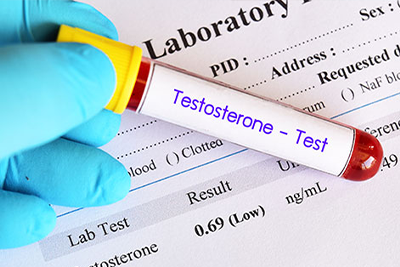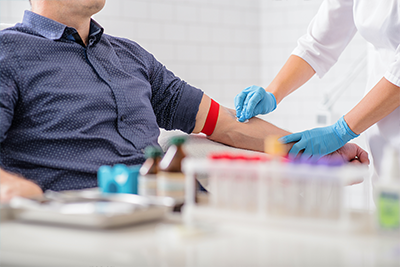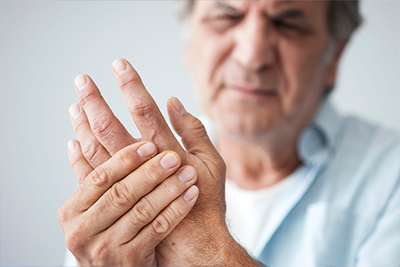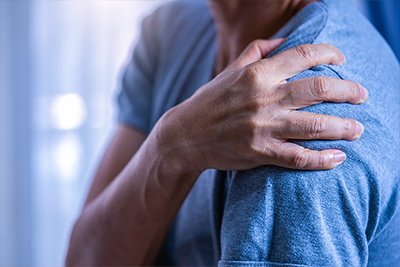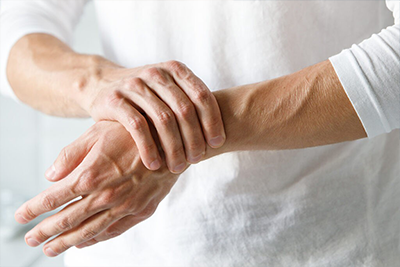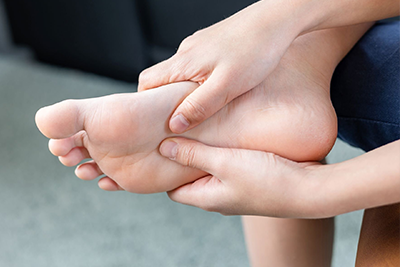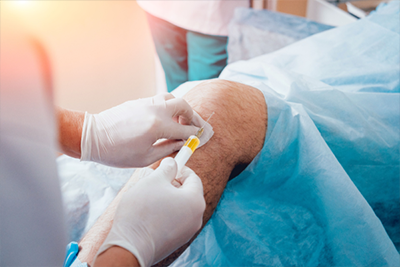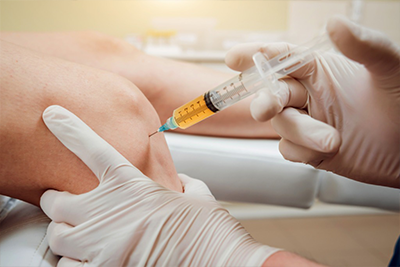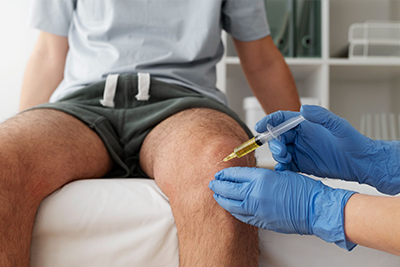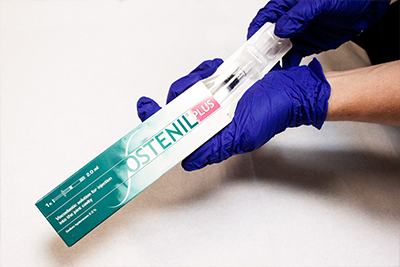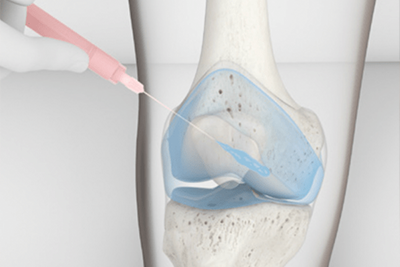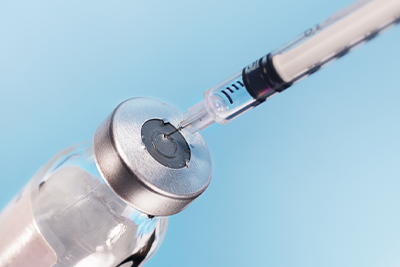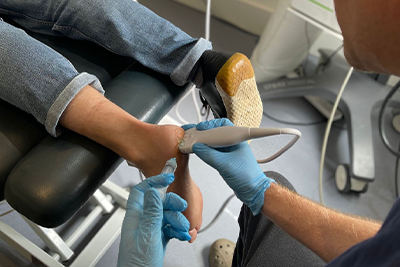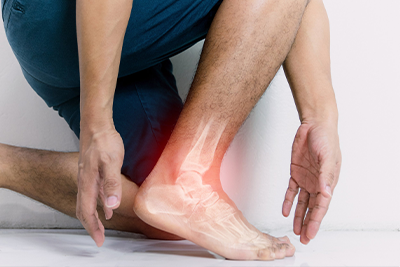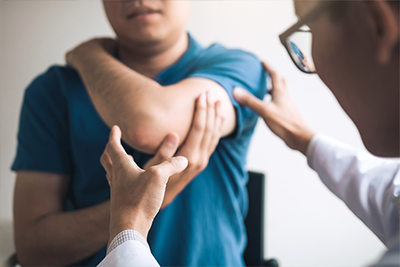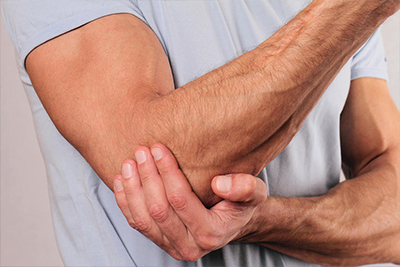Erectile dysfunction (ED) is a prevalent health issue affecting men globally, with significant psychological and interpersonal consequences. In the UK, it is estimated that half of all men between the ages of 40 and 70 will experience some degree of ED at some point in their lives. This condition not only impacts sexual health but is also often an indicator of underlying health problems, such as cardiovascular diseases and diabetes.
Lifestyle factors play a crucial role in the incidence and management of erectile dysfunction. Diet is one of the most significant influencers. A healthy diet can mitigate risk factors associated with ED, particularly those linked to cardiovascular health. Poor dietary choices can lead to obesity, metabolic syndrome, and diabetes, all of which are known risk factors for ED.
The research underscores the potential benefits of specific dietary patterns in reducing the risk and severity of erectile dysfunction. Two notable diets—the Mediterranean Diet and the Alternative Healthy Eating Index 2010—have been associated with a lower incidence of ED. These diets emphasise the consumption of whole grains, fruits, vegetables, legumes, and nuts and include moderate amounts of fish and poultry. They are rich in nutrients known to improve endothelial function and overall cardiovascular health, which are directly related to erectile performance.
The Mediterranean Diet, renowned for its cardiovascular benefits, is rich in olive oil, fruits, vegetables, and lean proteins and includes a moderate intake of wine. Similarly, the Alternative Healthy Eating Index 2010 promotes a balanced intake of the essential food groups, prioritising plant-based foods and reducing the intake of red and processed meats. Both diets not only support heart health but also offer a holistic approach to reducing the risk of erectile dysfunction, affirming the adage that a healthy body supports healthy sexual function.
By adopting these dietary patterns, men can potentially lower their risk of ED and enhance their overall quality of life.
Understanding Erectile Dysfunction
Erectile dysfunction (ED) is defined as the persistent inability to achieve or maintain an erection sufficient for satisfactory sexual performance. It’s a condition that can vary in severity; some men may achieve an erection but not sustain it, while others may not be able to achieve an erection at all. Symptoms of ED can include reduced sexual desire, as well as trouble with erections that affect sexual activities and satisfaction.
The causes of erectile dysfunction are often multifactorial and can be a mix of physical and psychological factors:
Cardiovascular Health:
There is a strong link between heart health and sexual function. ED often appears in men who have cardiovascular conditions such as hypertension, atherosclerosis (clogged blood vessels), or heart disease. These conditions impair blood flow throughout the body, including to the penis, making it difficult to achieve or maintain an erection.
Diabetes:
Men with diabetes are at a higher risk of erectile dysfunction. Over time, diabetes can cause damage to blood vessels and nerves that control erection. High blood sugar levels can also reduce nitric oxide production, a chemical essential for dilating blood vessels and increasing blood flow.
Psychological Factors:
Mental health issues can significantly affect sexual function. Depression, anxiety, stress, and relationship problems can all precipitate or exacerbate ED. Psychological distress can lead to a reduction in libido, further complicating matters.
Erectile dysfunction does not just affect a man’s physical health but his psychological well-being and overall quality of life as well. The inability to perform sexually can lead to a profound sense of insecurity, low self-esteem, and depression. It can strain relationships and often causes significant distress for both partners.
Men with ED may withdraw from their partners and isolate themselves, leading to a breakdown in communication and intimacy. The stress and anxiety linked to ED can create a vicious cycle, where anxiety about performance leads to increased ED symptoms, which in turn leads to more anxiety.
Addressing erectile dysfunction involves not only treatments to improve erectile function but also support for the psychological aspects of the condition. Understanding these interconnected factors is crucial for effective management of ED and can help improve both sexual and overall health.
How Diet Influences Erectile Dysfunction
Diet plays a critical role in the management of erectile dysfunction, primarily through its effects on cardiovascular health, which is closely linked to sexual function. The quality of a man’s diet can impact several mechanisms underlying ED, including endothelial function, arterial health, hormonal balances, and systemic inflammation.
A poor diet—high in processed foods, refined sugars, and saturated fats—can lead to vascular issues such as atherosclerosis, where plaque builds up in the arteries, reducing blood flow. Reduced arterial flow to the penis is one of the leading physical causes of ED. Conversely, a diet rich in fruits, vegetables, lean proteins, and whole grains can help reduce inflammation, improve blood flow, and enhance nitric oxide production, which is beneficial for achieving and maintaining an erection.
Nutrients That Potentially Affect Endothelial Function and Blood Flow:
Antioxidants:
Foods rich in antioxidants help reduce oxidative stress and inflammation, which are detrimental to endothelial health. Berries, dark leafy greens, and dark chocolate are high in antioxidants and can support vascular integrity.
Nitric Oxide Boosters:
Nitric oxide is crucial in erectile function, relaxing blood vessels and improving blood flow. Foods that boost nitric oxide levels include beets, garlic, and leafy greens like spinach and arugula.
Omega-3 Fatty Acids:
Found abundantly in fish like salmon and mackerel, omega-3 fatty acids are known to improve heart health and increase blood flow by enhancing endothelial function and decreasing inflammation.
Zinc:
This mineral is vital for testosterone production, which is crucial for sexual health. Zinc can be found in seafood, pumpkin seeds, and lean meats.
Obesity and metabolic syndrome (a cluster of conditions including increased blood pressure, high blood sugar, excess body fat around the waist, and abnormal cholesterol levels) are significant risk factors for ED. These conditions impair the body’s ability to use insulin effectively, which can lead to diabetes and further complicate erectile function. The increased body fat associated with obesity can also lead to hormonal imbalances that may decrease libido and increase the risk of ED.
Metabolic syndrome affects the endothelial cells lining the blood vessels, leading to reduced nitric oxide availability and impaired vasodilation, directly impacting the ability to achieve and maintain an erection. Additionally, the psychological effects of obesity, such as reduced self-esteem and increased anxiety, can exacerbate the symptoms of erectile dysfunction.
Dietary Patterns That Lower the Risk of Erectile Dysfunction
The Mediterranean Diet
The Mediterranean Diet is renowned for its numerous health benefits, particularly in promoting heart and vascular health, which are crucial for good erectile function. This dietary pattern is characterised by:
It predominantly includes:
- Fruits and Vegetables:
These are rich in vitamins, minerals, and antioxidants, which help reduce inflammation and oxidative stress, improving arterial health.
- Nuts and Seeds:
High in healthy fats, such as omega-3 fatty acids, are known to improve cardiovascular health.
- Whole Grains:
These provide essential fibre, which helps manage blood sugar levels and reduce cholesterol.
- Olive Oil:
Olive oil is a primary source of healthy monounsaturated fats, which are beneficial for heart health and help reduce the risk of cardiovascular diseases.
Role of Fish and Lean Proteins:
Regular fish consumption provides high levels of omega-3 fatty acids, which are known to reduce blood vessel inflammation, improve blood flow, and maintain erectile function. Lean proteins from poultry and legumes also contribute to muscle maintenance and overall physical health without the adverse effects of red meat.
Moderate Alcohol Consumption:
Typically, the diet allows for moderate consumption of red wine, which is rich in antioxidants like resveratrol. Moderate alcohol intake has been associated with improved heart health, but it’s crucial to consume it judiciously, as excessive alcohol can lead to adverse effects on erectile function.
The Alternative Healthy Eating Index 2010
The Alternative Healthy Eating Index 2010 emphasises a plant-based diet to reduce the risk of chronic diseases. Key aspects include:
- Plant-Based Foods:
The focus is on an increased intake of fruits, vegetables, whole grains, and nuts, similar to the Mediterranean Diet, but with even more emphasis on variety and plant sources.
- Reduction of Red and Processed Meats:
This diet recommends limiting the intake of red and processed meats, which are linked to heart disease and high cholesterol levels and adversely affect erectile function.
Importance of Whole Grains, Nuts, and Omega-3 Fatty Acids:
Whole grains help regulate blood sugar and improve heart health, while nuts provide healthy fats for hormonal balance and cardiovascular health. Omega-3 fatty acids, especially from plant sources like flaxseeds and hemp seeds, contribute to vascular health and are anti-inflammatory.
Both the Mediterranean Diet and the Alternative Healthy Eating Index 2010 help mitigate several risk factors associated with erectile dysfunction:
Improved Vascular Health:
Both diets promote better blood flow by including heart-healthy nutrients that enhance endothelial function and reduce arterial stiffness.
Weight Management:
Focusing on high-fiber, nutrient-dense foods, these diets help maintain a healthy weight, which is crucial in managing and preventing metabolic syndrome, a significant risk factor for ED.
Hormonal Balance:
Healthy fats from these diets support testosterone production, which is necessary for sexual function. Reducing the intake of sugars and refined carbohydrates helps prevent insulin resistance, which can also affect testosterone levels.
Reduction of Inflammation:
Chronic inflammation can damage blood vessels and affect the nervous system, leading to compromised erectile function. The high antioxidant content in these diets helps in reducing systemic inflammation.
Specific Foods and Nutrients to Focus On
Fruits and Vegetables:
Fruits and vegetables are pivotal in any diet to improve erectile function due to their high antioxidant content. This combats oxidative stress and inflammation, which can impair vascular health. Vibrant berries, like blueberries, strawberries, and raspberries, and leafy greens, such as spinach, kale, and Swiss chard, are particularly rich in antioxidants. These foods help protect and repair the endothelial lining of the arteries, which is crucial for maintaining the excellent blood flow needed for a healthy erection.
Nuts and Seeds:
Nuts and seeds are excellent sources of healthy fats, proteins, and essential minerals like zinc and selenium, crucial for hormonal balance and cardiovascular health. Almonds, walnuts, flaxseeds, and chia seeds are heart-healthy and beneficial in maintaining the nervous system and normal erectile function. Regularly consuming these nuts and seeds can reduce LDL cholesterol levels and enhance blood flow.
Whole Grains:
Whole grains are a critical component of a diet that supports cardiovascular health. Foods such as brown rice, quinoa, barley, and whole wheat contain high levels of fibre, which helps regulate blood sugar levels and decrease cholesterol, a factor directly linked to vascular problems that can lead to erectile dysfunction. Integrating whole grains into daily meals supports heart health and maintains consistent energy and overall vitality.
Lean Meats and Fish:
Lean meats like turkey, chicken, and grass-fed beef provide high-quality protein for muscle strength and physical health, essential for sexual performance. Fish, particularly fatty types like salmon, mackerel, and sardines, are rich in omega-3 fatty acids. These fats are vital for heart health and decrease inflammation in the body, including the blood vessels, facilitating better blood flow and reducing the risk of erectile dysfunction.
Reduction of Trans Fats and High-Sugar Foods:
It is crucial to limit intake of trans fats and high-sugar foods, as these can lead to increased body fat, reduced arterial health, and disrupted insulin levels. Foods high in trans fats, such as fried foods, baked goods, and processed snack foods, contribute to heart disease and poor vascular health, which are leading causes of erectile dysfunction. Similarly, high-sugar diets can lead to obesity, diabetes, and metabolic syndrome, all of which can impair sexual function. Reducing and replacing these in your diet with healthier options will aid in better overall metabolic health and erectile function.
Implementing Dietary Changes
Adopting a healthier diet, such as the Mediterranean or Alternative Healthy Eating Index 2010 (AHEI-2010), can be a transformative step towards managing erectile dysfunction and improving overall health. Here are some practical tips on how to implement these dietary changes effectively.
Start with Small Changes:
Gradually incorporate more fruits, vegetables, whole grains, and healthy fats into your diet. For example, add a serving of vegetables to every meal, swap refined grains for whole grains like quinoa or whole wheat, and use olive oil for cooking instead of butter or other fats.
Plan Your Meals:
Planning meals can help you stick to a healthy eating pattern. Prepare a weekly menu and shop accordingly to avoid the temptation of unhealthy options.
Incorporate a Variety of Foods:
Both the Mediterranean and AHEI-2010 diets emphasise diversity. To ensure a broad intake of nutrients, try to include various fruits, vegetables, and protein sources throughout the week.
Cook at Home More Often:
Preparing meals at home allows you to control ingredients and cooking methods. Focus on grilling, baking, or steaming rather than frying.
Understand Portion Sizes:
Overeating, even healthy foods, can lead to weight gain and associated health issues. Familiarise yourself with proper portion sizes—for example, a serving of meat should be about the size of a deck of cards.
Eat Regularly:
Aim for a regular eating schedule. Skipping meals can lead to overeating later. Regular, balanced meals help maintain steady blood sugar levels, crucial for managing energy and hormone levels.
Stay Hydrated:
Good hydration is essential for maintaining the health of all cells, including those in the cardiovascular system. Dehydration can lead to a decrease in blood volume, impairing blood flow, including to the penis. Aim for 6-8 glasses of water daily, more if you are active or it is particularly hot.
Limit Sugary and Caffeinated Beverages:
While hydration is necessary, avoid high-sugar drinks or excessive amounts of caffeine, as these can affect your energy levels and blood sugar balance.
Additional Lifestyle Modifications
While dietary adjustments play a crucial role in managing erectile dysfunction, their effectiveness can be significantly enhanced when combined with other lifestyle modifications. Addressing various aspects of lifestyle can create a synergistic effect, improving overall health and explicitly combating ED.
Quitting Smoking:
Smoking has a profound negative impact on vascular health, which in turn affects erectile function. Nicotine constricts blood vessels, reducing the blood flow necessary for an erection. Quitting smoking can help restore vascular health, enhancing the benefits of a healthy diet.
Increasing Physical Activity:
Regular exercise is another critical component in managing erectile dysfunction. Activities that improve cardiovascular health, such as brisk walking, cycling, or swimming, can increase blood flow throughout the body, including the genital area. As health guidelines recommend, aim for at least 150 minutes of moderate-intensity aerobic activity or 75 minutes of vigorous activity each week.
- Strength Training: Incorporating strength training exercises two or more days a week can also improve muscle strength and increase testosterone levels, which can have a positive effect on erectile function.
Weight Management:
Maintaining a healthy weight reduces the risk of chronic diseases associated with ED, such as type 2 diabetes and high blood pressure. The most effective way to achieve and maintain a healthy weight is a combination of diet and regular exercise.
Mindfulness and Meditation:
Chronic stress can impair erectile function by affecting hormone levels and blood flow. Practices such as mindfulness and meditation can reduce stress and improve mental health, vital for overall and sexual health.
Adequate Sleep:
Ensuring sufficient and quality sleep is essential for good health. Poor sleep can affect many health aspects, including libido and testosterone levels, which are crucial for erectile function. Aim for 7-9 hours of quality sleep per night.
Social Connections and Support:
Maintaining strong relationships and having a support network can help manage stress and improve psychological well-being. Social interaction has been shown to reduce stress levels and improve mood, which can indirectly help manage ED.
Professional Counselling:
If lifestyle changes and dietary adjustments seem overwhelming, or if psychological issues such as anxiety or depression are influencing erectile function, seeking professional counselling can be beneficial. Therapy can address the psychological components of ED and provide strategies to manage stress and anxiety related to sexual performance.
By integrating these lifestyle modifications with dietary changes, individuals can achieve a more comprehensive approach to managing erectile dysfunction. Not only do these changes improve physical health and reduce the incidence of ED, but they also enhance overall quality of life and well-being.
Related Articles
- Foods To Boost Erections
- Lifestyle Factors Impacting Erectile Dysfunction
- Testing for Erectile Dysfunction Yourself
- Lifestyle Changes to Boost Testosterone Levels Naturally
- Testicles and Testosterone in Men’s Health


